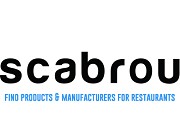Tortilla (and silicon) chips to go: How AI kitchen assistants are set to transform QSRs




Quick service restaurant giant Chipotle is betting on Miso Robotics’ AI kitchen assistant ‘Chippy’ to innovate its culinary process for tortilla chips. The development follows another recent announcement that US burger chain White Castle is to roll out an army of the tech firm’s burger-flipping automatons across 100 locations. With many more trials on-going with restaurant brands across the States, Food & Beverage Networker (https://www.fandbnetworker.com) reports on the potentially game-changing rise of the back-of-house cobots.
For decades, Moore’s Law has seen the computing power of the microprocessor (that is, the number of transistors in a dense integrated circuit) doubling roughly every two years. With it, the price of these chips has decreased dramatically over the years, making the machinery and equipment that they intelligently control more affordable for an ever-broader array of applications. One interesting use of these microprocessors in terms of high growth potential is their incorporation into collaborative robots (cobots) for foodservice, to the point whereby new trials with US-based Mexican grill chain Chipotle now literally sees these computing chips power the manufacture of chips of a more flavoursome variety.
Developed by Miso Robotics (https://misorobotics.com/) in collaboration with Chipotle's culinary and technology teams, ‘Chippy’ is an autonomous kitchen assistant that integrates culinary traditions with artificial intelligence to cook and freshly season Chipotle's tortilla chips. “We’re always exploring opportunities to enhance our employee and guest experience. Our goal is to drive efficiencies through collaborative robotics that will enable Chipotle's crew members to focus on other tasks in the restaurant,” explained Curt Garner, Chief Technology Officer at Chipotle.
Meanwhile, Miso Robotics’ CEO Mike Bell is keen to emphasise that his company’s technology is inherently more adept at certain (predominantly back-of-house) tasks, just as humans are naturally better at others. “Right now, there may be a quarter of a million locations where human beings are cooking essentially the same kind of food in the same kind of way. So, it’s akin to a very large, distributed factory base, if you will,” he begins. “The restaurant industry is lagging many other industries in terms of the adoption of cost-cutting automation technologies. We’re at the forefront of really changing how food is cooked in America – and frankly, the rest of the world. But it’s not about taking over all the functions – some of which, for example, when it comes to interacting with customers, humans will be naturally better at,” he continues. “Yet there are tasks at the fry station: imagine there’s four different fryers – two baskets each. A human being is just not intrinsically very good at managing eight baskets at once, each with a short cook cycle. So, that’s just a natural application for our technology in the restaurant industry.”
Retaining humanity in the culinary experience
With regards to the development of Chippy, Chipotle's culinary team guided Miso Robotics in tailoring its technology to maintain the culinary integrity of the brand. Leveraging artificial intelligence, Chippy is trained to replicate Chipotle's exact recipe – using corn masa flour, water and sunflower oil – to cook chips to perfection, season with a dusting of salt, and finish with a hint of fresh lime juice. According to the restaurant chain, “It was imperative that the technique remained the same so customers receive delicious, crave-able chips every time”.
“Everyone loves finding a chip with a little more salt or an extra hint of lime,” said Nevielle Panthaky, Vice President of Culinary, Chipotle. “To ensure we didn't lose the humanity behind our culinary experience, we trained Chippy extensively to ensure the output mirrored our current product, delivering some subtle variations in flavour that our guests expect.”
Chippy is currently being tested at the Chipotle Cultivate Center – the company’s innovation hub in Irvine, California – and will be integrated into a Chipotle restaurant in Southern California later this year. The company told Food & Beverage Networker (https://www.fandbnetworker.com) that it would be “leveraging its stage-gate process to listen, test and learn from crew and guest feedback before deciding on a national implementation strategy”.
At the end of 2021, Chipotle had over 2,950 restaurants in the US, Canada, the UK, France and Germany. Significantly, the Fortune 500 business is the only restaurant company of its size that owns and operates all its restaurants. Needless to say, a nation-wide roll-out of Miso Robotics’ technology would be a huge step forward for the tech firm, as well as proving the attractiveness of such co-bots for the wider foodservice sector.
New era for enhancing back-of-house functions
“When Chipotle challenged us to see if our technology could meet the brand's high standards for culinary quality, we couldn't wait to flex our engineering and design muscles,” said Mike Bell, CEO, Miso Robotics. “This partnership will allow us to move into new territory to help improve back-of-house functions and assist team members with their day-to-day responsibilities.”
Chipotle is considered something of an innovator in restaurant technology, and continues to invest in emerging solutions to support its growing digital business and reduce friction in its restaurants. The company believes technology deployed consistently and correctly can improve the human experience. Chipotle already leverages artificial intelligence with its concierge chat bot, Pepper. Pepper ensures guests have an exceptional experience on the Chipotle app and Chipotle.com. Chipotle customers can select from frequently asked questions or ask their own questions to get a response quickly. Chippy joins Pepper in Chipotle's AI suite to improve Chipotle's overall guest and employee experience.
A breakthrough in automated burger-flipping
Beyond its technological collaboration with Chipotle, elsewhere in the QSR space Miso Robotics is striving to solve some of the largest gaps in back-of-house kitchen operations – not least through its collaboration with White Castle. Generally credited as the world’s first fast-food hamburger chain, the Columbus Ohio headquartered company boasts 377 locations across 13 states, with its greatest presence in the Midwest and New York metropolitan area.
Earlier this year, White Castle announced plans to further expand its work with Miso Robotics and install ‘Flippy 2’ in 100 standalone locations. The announcement is the latest milestone for the partnership, which began in September 2020 with the deployment of the original Flippy to a White Castle in the Chicagoland area. By taking over the work of an entire fry station, the upgraded Flippy 2 alleviates the ‘pain points’ that come with back-of-house roles at quick-service restaurants, in order to create a working environment for its human co-workers that maximises the efficiency of the kitchen. “The improved workflow allows for the redeployment of team members to focus on creating memorable moments for customers”, according to the technology firm, whose Flippy 2 innovation has also been trialled by US-based QSR chains Jack in a Box and Del Taco.
Certainly, White Castle anticipates many improvements in efficiency, product quality and team member experience as a result of its partnership with Miso Robotics, with rollouts of Flippy 2 set to be phased by region and scheduled in the months and years ahead. “White Castle was the first large brand to embrace our technology, and we are thrilled that our Flippy pilot made such a positive impact on their operations that they want to integrate 100 more,” commented Mike Bell, CEO of Miso Robotics – a firm primarily funded by individual investors, and representing one of the most successful equity crowdfunding campaigns in history. With over 15,000 shareholders, the company has raised more than US$90 million to date and is currently in its Series E+ round – a limited extension of its successful Series E, which kicked off with a market valuation of US$500 million – aimed at funding a significant expansion of the firm’s commercial manufacturing and international operations.
Other breakthrough products from Miso Robotics include CookRight (an AI-powered vision and sensor system for the grill), and Sippy (the world's first POS-integrated automatic beverage dispenser and sealer) – both also launching in 2022 – as the firm strives to revolutionise commercial foodservice through intelligent automation solutions.
Check out Food & Beverage Networker for further HoReCa and wider food industry insights: https://www.fandbnetworker.com























































































